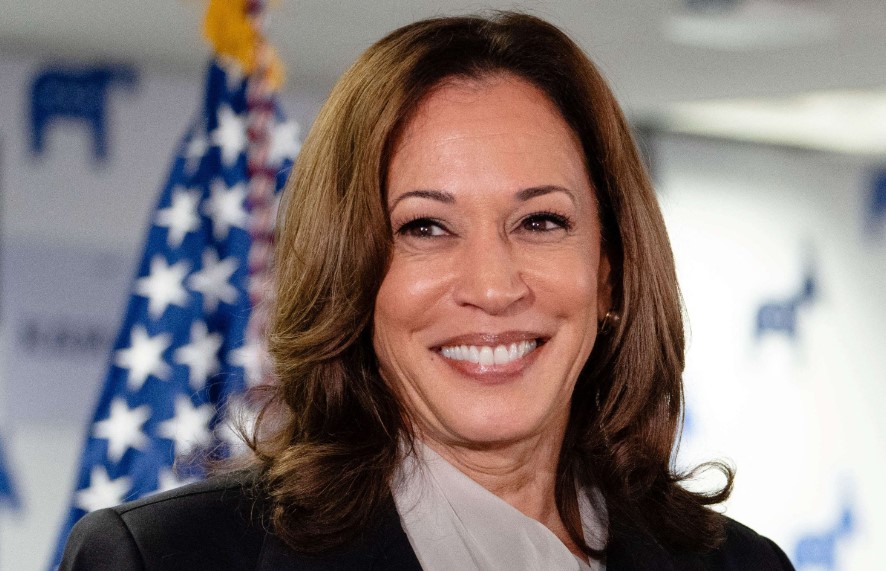Kamala Harris’ rising popularity might be more than just a temporary boost in the polls—a so-called honeymoon phase. While Democrats are hoping it signals lasting momentum, Republicans are betting on it fading once the real campaigning begins. However, from a psychological perspective, Harris’ entry into the race could mark a pivotal moment that goes beyond mere political strategy. Her candidacy might signal a return to reality for a nation that has been grappling with a political landscape filled with fantasy and misinformation. As 2024 looms, it’s worth asking: Could Kamala Harris be the one to bring America back to a grounded, reality-based discourse?

The Psychological Impact of Leadership
Freud’s Take on Societal Neurosis
Sigmund Freud once pondered whether entire societies could become neurotic under certain cultural pressures. When a whole society starts to lose touch with reality, it becomes challenging to distinguish what is normal. The recent political climate, where both major parties have played fast and loose with the truth, has pushed America dangerously close to this kind of collective neurosis.
The Strain of Political Denial
Both Republicans and Democrats have been guilty of asking their supporters to ignore blatant realities. Trump supporters were told to believe that he won the 2020 election, despite evidence to the contrary. On the other side, Democrats downplayed concerns about President Biden’s age and cognitive health, even as these issues became increasingly visible.
The Role of Transference in Politics
Unconscious Parental Archetypes
Psychologists understand that during times of stress, people tend to regress emotionally, often projecting parental roles onto leaders. In politics, this phenomenon is known as transference. For instance, Angela Merkel became known as “Mutti” (Mother) in Germany during a crisis, despite not embodying traditional maternal qualities. Similarly, American voters have projected paternal archetypes onto Biden and Trump, with Biden seen as the aging father in denial and Trump as the aggressive, authoritarian figure.
The American Psyche Under Stress
The 21st century has brought immense challenges, from climate change to economic instability, leaving Americans particularly vulnerable. Many have been personally affected by these upheavals, yet the nation seems ill-prepared to deal with such stress. As a result, voters are increasingly drawn to leaders who offer psychological comfort rather than concrete policy solutions.
Harris vs. the “Father Figures”
Biden’s and Trump’s Archetypes
Both Biden and Trump have struggled to inspire confidence as father figures in the eyes of the American electorate. Biden’s campaign often seemed out of touch with the struggles of ordinary Americans, while Trump’s combative style painted him as a domineering, narcissistic patriarch. In times of stress, voters tend to favor strength, which is why Trump’s aggressive tactics often overshadowed Biden’s more subdued approach.
Harris as the Maternal Archetype
With Biden stepping aside, Harris now represents a different archetype: the strong, compassionate working mother. This figure, long present in the American consciousness (think “Rosie the Riveter”), has not been fully activated in a presidential race until now. Harris embodies a no-nonsense approach while still offering empathy and protection—qualities that may resonate deeply with an electorate weary of the paternal conflict.
The Challenge and Opportunity Ahead
Harris’ Potential to Restore Sanity
As Trump continues to run on a platform of denial and aggression, Harris has the chance to offer a more grounded, reality-based alternative. Her history of blending conservative and progressive values further strengthens her appeal as a balanced, compassionate leader. If she can effectively communicate these qualities, she may not only secure the presidency but also help guide the nation back to a healthier, more truthful political dialogue.
The Therapeutic Role of Leadership
Great leaders have often served as “therapists” for the nation during challenging times. Franklin Roosevelt, for instance, offered both frankness and vigor, helping America navigate the dark days of the Great Depression and World War II. Harris has the opportunity to play a similar role, helping the nation face its fears and take steps toward a more stable and sane future.
Conclusion Kamala Harris’ rise in the political landscape offers more than just a potential Democratic victory—it represents a chance for America to reconnect with reality. As she continues to gain momentum, the nation may find in her the psychological relief it desperately needs, moving away from denial and towards a more honest and compassionate future.